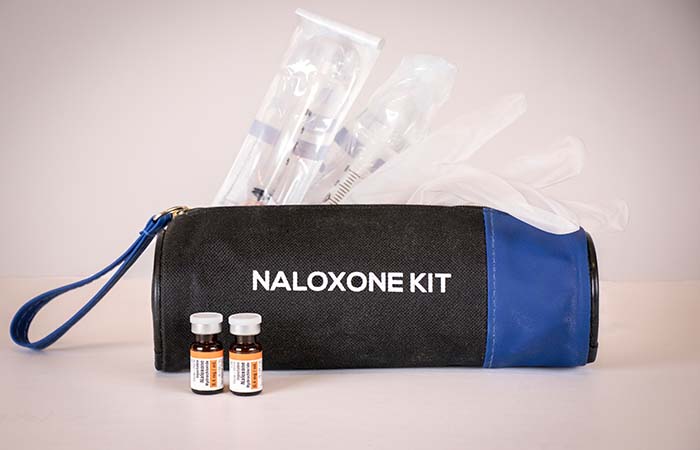Community pharmacies’ take-home naloxone powers kick in today
In Profession news
Follow this topic
Bookmark
Record learning outcomes
Legal exemptions allowing UK community pharmacies to provide take-home naloxone without a prescription to reverse potential opiate overdoses come into force today (Monday December 2).
The amendment to the Human Medicines Regulation, which follows a public consultation earlier this year, means pharmacists and pharmacy technicians can now supply naloxone kits for future use “to those who need it, without a prescription”, deputy chief medical officer Jeanelle De Gruchy said in a briefing on Friday.
She said the change has been introduced amid a year-on-year rise in drug misuse deaths, with 2023 seeing a record 3,618 deaths in England and Wales – 16 per cent more than the previous year. Nearly three quarters of deaths were related to opiates such as heroin.
Up to now, only drug and alcohol treatment services were able to supply the drug for future use. In addition to pharmacy professionals, groups such as armed forces medics, police forces, nurses and midwives are also covered by the new exemption.
Services included in the scope of the amendment “should establish their position on naloxone provision and, where necessary, purchase supplies of naloxone and ensure staff have undertaken the appropriate training,” said Ms De Gruchy.
She added: “We have also amended legislation to enable the department to establish a new registration service in the future to give professionals and organisations not named explicitly in the legislation this same power to supply take-home naloxone, subject to appropriate training and safeguards.
“This… requires further development and therefore will not come into effect immediately.”
The Department will seek to compile data from services providing take-home naloxone, said Ms De Gruchy: “In time, services wishing to use this new power will also be required to collect and share data on naloxone provision.
“From now, we strongly encourage services who are giving out take-home naloxone kits to record, at a minimum, how many kits they give out.
“This will enable us, in time, to understand national demand following these changes. We will provide further information on any formal reporting requirements in due course, but these will be proportionate and limited to mitigate against any potential burden on services.”
The Department of Health and Social Care urged all services, including those who do not plan to use their new powers, to ensure those at risk of overdose are signposted or referred to local drug and alcohol treatment and recovery services.
“There should be ‘no wrong door’ for people to seek support, and we encourage services to make every contact count,” said Ms De Gruchy.

